Truthdigger of the Week: Amal Clooney
Amal Clooney will represent 14 Irish prisoners who endured Britain’s version of Guantanamo in a case that, according to researcher Lauretta Farrell, has become “the benchmark by which other countries measure their ‘enhanced interrogation programs.’ ”

Amal Clooney arrives at the European Court of Human Rights in Strasbourg, France, in January. (AP/Christian Lutz)
Every week the Truthdig editorial staff selects a Truthdigger of the Week, a group or person worthy of recognition for speaking truth to power, breaking the story or blowing the whistle. It is not a lifetime achievement award. Rather, we’re looking for newsmakers whose actions in a given week are worth celebrating.
From the use of drones in the Middle East to the extradition of Julian Assange, lawyer Amal Clooney has taken on some of the world’s most high-profile human rights cases in her short career. Although the tabloid media may (depressingly) view marrying the planet’s most eligible bachelor — actor George Clooney — as her greatest achievement, her legal track record speaks for itself. In the last year alone, she has represented the Greek government in its quest to repatriate the contentious Elgin Marbles; she has fought on behalf of Armenia against a Turkish politician who has denied the Armenian genocide; and she has risked arrest by defending Al-Jazeera journalists imprisoned in Egypt.
Now Amal Clooney will represent Northern Ireland’s “Hooded Men,” 14 Irish prisoners who endured Britain’s version of Guantanamo in a case that, according to researcher Lauretta Farrell, has become “the benchmark by which other countries measure their ‘enhanced interrogation programs,’ and continues to be used to justify the use of torture by democratic societies.” The trial will be heard in the European Court of Human Rights, in Strasbourg, and its result could rewrite international law and help combat the use of torture globally.
Decades before Abu Ghraib’s hooded captives would become symbolic of torture in the public consciousness, the Hooded Men were subjected to dehumanizing, horrific “special treatment” at the hands of the British army and the Royal Ulster Constabulary — Northern Ireland’s former police force. Several of the men, who were arrested on suspicion of belonging to the Irish Republican Army, were in fact prominent civil rights activists, and one of them — P.J. McClean — was a founder of the Northern Ireland Civil Rights Association. None were ever convicted of any offense.
Twelve of the men were captured on Aug. 9, 1971, when 342 Catholics were arrested as part of Operation Demetrius, which ushered in one of Ireland’s darkest times with mass internment, or imprisonment, without trial. During the first half of the 1970s, almost 2,000 people were interned and 7,000 people fled or were forced out of their homes amid sectarian violence. Under the notorious Special Powers Act, which rescinded habeas corpus and allowed almost free rein to British forces, internment had been employed by the Unionist government in every decade since the creation of the Northern Irish state as a means to suppress Republican opposition.
The 14 men would later describe themselves as “the guinea pigs” for what became known as the five techniques for in-depth interrogation: prolonged “wall-standing,” hooding, subjection to noise, sleep deprivation and deprivation of food and drink. Wall-standing involved forcing prisoners to stand balanced in the “search position” against a cell wall for hours at a time, causing painful muscle cramps. One of the men described being forced to remain in this position for 43½, and there were many other recorded instances of prisoners being kept this way for more than 20 hours. According to Amnesty International, hooding meant that a prisoner’s head was covered with an “opaque cloth bag with no ventilation” except during interrogation or when in isolation. Subjection to noise meant placing the prisoner in close proximity to “white noise” from machinery, such as a generator or compressor, for as long as a week. One of the men described to Amnesty International how he was driven to the brink of insanity by the noise and how he tried to commit suicide by banging his head against metal pipes in his cell.
In addition to the five techniques and the severe beatings that they suffered constantly, the men have recounted being thrown out of helicopters blindfolded, being forced to exercise to the point of exhaustion, being bitten by dogs and being forced to run over gravel and glass in their bare feet.
In 1971, Ireland took the first interstate case to come before the European Court of Human Rights, Ireland v. United Kingdom, which alleged that the United Kingdom had breached the European Convention on Human Rights through the torture and ill-treatment of the Hooded Men by members of the British army and Northern Ireland’s constabulary. Although the European Commission of Human Rights upheld a complaint in 1976 by the Irish government that the men had been tortured, the ruling was later overturned on appeal when the European Court of Human Rights ruled that the men had been subjected to inhumane and degrading treatment, but not to torture.
As a result, the 1978 ruling has been used as a legal justification for similarly “enhanced interrogation techniques,” most recently in the George W. Bush administration’s infamous “torture memos,” which provided the legal framework for the interrogation techniques that could be used on U.S. detainees. Soon after, the CIA began applying the five techniques in Iraq, Afghanistan and around the world.
Jay Bybee, an assistant attorney general at the time, singled out the Hooded Men’s case as particularly useful for the Bush administration’s purposes. “Careful attention to this case is worthwhile … ,” he wrote, “because the Reagan administration relied on this case in reaching the conclusion that the term torture is reserved in international usage for ‘extreme, deliberate, and unusually cruel practices.’ ”
Clooney’s team will be revisiting the Ireland v. U.K. judgment in light of new information that shows the British government lied and withheld documents in the 1978 trial. According to the files, the British government did in fact consider the “special treatment” torture, even though senior ministers sanctioned its use in Northern Ireland. As an Irish television documentary demonstrates, both were charges that they had denied before the European court.
“The U.K. withheld from the European court what it knew about the terrible suffering deliberately inflicted on them and its being sanctioned at the highest levels of the U.K. government,” Colm O’Gorman, executive director of Amnesty International Ireland, has said.
Clooney, whose newfound celebrity has helped to bring international attention to the case, will be joined by other lawyers from Belfast, Dublin and London to persuade the European court to officially classify the men’s treatment as torture. Not only would victory for the 11 surviving men finally recognize that truth, but it would preclude the use of such techniques in the future. This is why the formidable and fascinating Amal Clooney is our Truthdigger of the Week.
Independent journalism is under threat and overshadowed by heavily funded mainstream media.
You can help level the playing field. Become a member.
Your tax-deductible contribution keeps us digging beneath the headlines to give you thought-provoking, investigative reporting and analysis that unearths what's really happening- without compromise.
Give today to support our courageous, independent journalists.
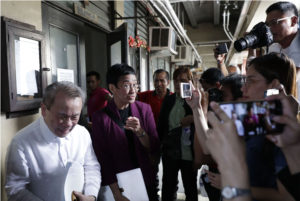
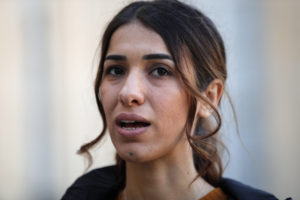
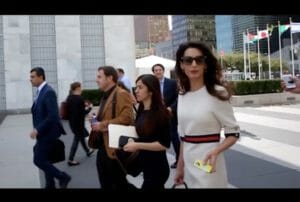
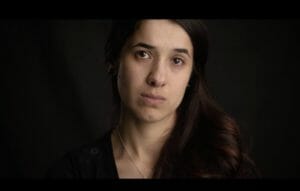
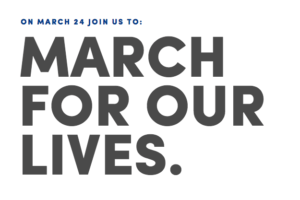

You need to be a supporter to comment.
There are currently no responses to this article.
Be the first to respond.